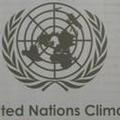 為了促成溫室氣體減量新國際協議的聯合國氣候會談,8日在德國波昂進行最新一回合談判上,取得了聯合國高級氣候官員所說的「重大」進展。
為了促成溫室氣體減量新國際協議的聯合國氣候會談,8日在德國波昂進行最新一回合談判上,取得了聯合國高級氣候官員所說的「重大」進展。
「各個國家在許多實際層面上縮小了歧見,像如何加強採取氣候變遷調適行動,就是一個例子。」聯合國氣候變化綱要公約(UNFCCC)執行秘書德布爾(Yvo de Boer)表示:「在各國必須於12月哥本哈根會議開議前取得共識的極有限時間壓力下,這樣的進展可謂相當重大。」
聯合國氣候變遷年度會議將在丹麥哥本哈根舉行,而隨著首次減少溫室氣體排放的協定《京都議定書》在2012年到期,預料屆時各國將通過接續京都議定書的新協定。
波昂會議於3月29日開始舉行,是在哥本哈根會議召開前安排的四個會期的第一會期。與會的2000多位代表分別來自政府、企業、產業、環保組織及研究機構等。
關於工業國家於2012年後減排目標的協商,主要是把焦點放在減排規模、改善碳排放交易機制、京都議定書的碳補償(carbon offset)機制,以及土地利用改變和林地等相關問題上。
 不過,此會談對於受京都議定書規範的工業國家之減排量,缺少實質討論,某些代表對此表示失望。
不過,此會談對於受京都議定書規範的工業國家之減排量,缺少實質討論,某些代表對此表示失望。
全球性保育組織「世界自然基金會」(WWF)8日表示,「相較於2008年的波蘭會議,各位代表在此次波昂會議行進間的氣氛和緩許多。然而,在減少碳排放及財務支援等重大議案卻沒有進一步動作。」
WWF全球氣候推行計畫執行長卡斯坦森(Kim Carstensen)表示,「友善的言辭固然有幫助,但如此缺乏堅定的決心和設定減量目標來減少二氧化碳排放,顯然不夠完善到保護破碎的地球免於氣候變遷肆虐。」
卡斯坦森說道,「儘管波昂會議行進間的氣氛有改善,但氣候在此同時也持續失去控制中。我們必須將言語轉為積極行動,以解決我們所面臨的巨大威脅。」
The latest round of United Nations talks aimed at reaching an ambitious new treaty on the reduction of greenhouse gas emissions wrapped up late Wednesday in Bonn, having achieved what the UN's top climate change official called "important" progress.
"Countries have narrowed gaps in many practical areas, for example on how to strengthen action for adapting to the impacts of climate change," said Yvo de Boer, executive secretary of the UN Framework Convention on Climate Change.
"This is important progress given the very limited time negotiators have to get to an agreed outcome in Copenhagen in December this year," de Boer said.
Copenhagen, Denmark will be the site of the UN's annual climate change conference at which countries are expected to adopt an agreement to succeed the Kyoto Protocol, whose first commitment period for reducing greenhouse gas emissions ends in 2012.
More than 2,000 delegates from government, business and industry, environmental organizations and research institutions, participated in the Bonn meeting, which began on March 29 and is the first of four sessions planned ahead of the Copenhagen conference.
Negotiations on greenhouse gas emissions reductions to be achieved by industrialized countries after 2012 centered on issues related to the scale of the reductions, improvements to emissions trading and the Kyoto Protocol's carbon offset mechanisms, as well as concerns relating to land-use change and forestry.
Some delegates expressed disappointment over the lack of substantive discussion on emission reductions by the industrialized countries now governed by the Kyoto Protocol.
The global conservation organization WWF said on Wednesday that the Bonn talks resulted in a friendlier atmosphere among delegates compared to last year's meeting in Poland but no steps forward were taken on key issues such as emission reductions and financial support.
"Friendly rhetoric certainly helps, but without serious commitment and binding targets to reduce carbon dioxide it simply isn't good enough to protect a fragile planet from runaway climate change," said Kim Carstensen, leader of WWF's Global Climate Initiative.
"The atmosphere at the talks in Bonn may have improved, but the climate out there is still spinning out of control. We must turn nice words into aggressive action to tackle the giant threat that's upon us," he said.

